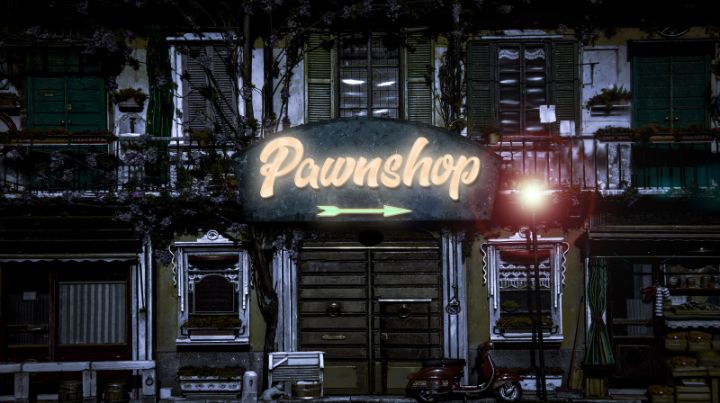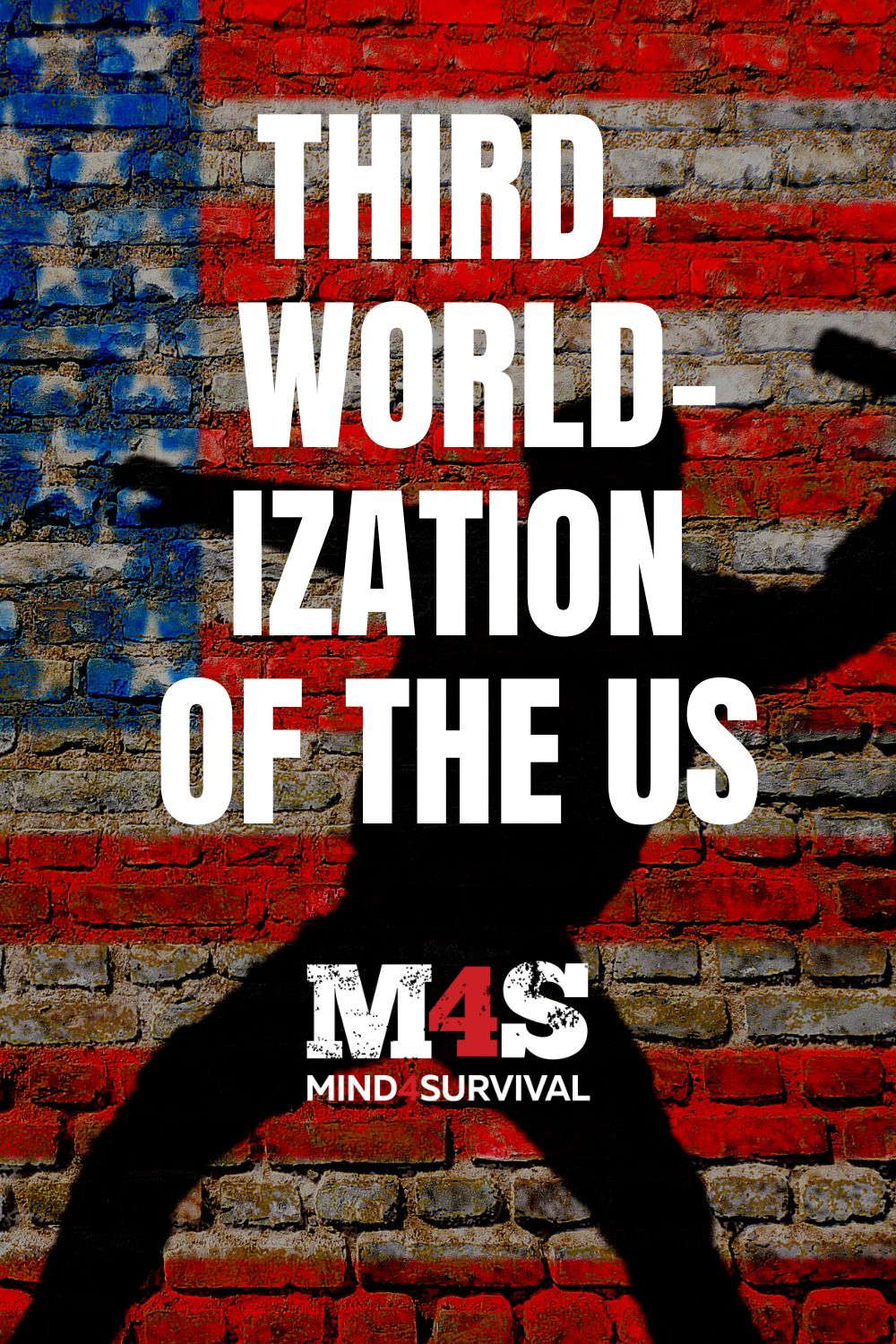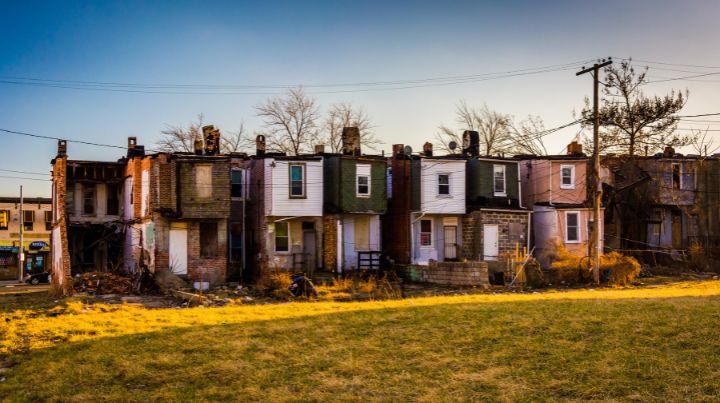143: Thirdworldization of the U.S. and the Stages of a Collapse


Podcast: Play in new window | Download
I’ve been writing about Thirdworldization since the 2008 financial crisis. It is the process where the structures that support the system in developed nations become inefficient, crippled, and society decadent and belligerent. In this article, I talk about the dynamics of Thirdworldization, the intermediary stages of collapse, SHTF misconceptions – and how these things interconnect.
Historian Victor Davis Hansen nails Thirdworldization down with perfection, so I’ll kick this off in style by quoting him:
“In modern times, as in ancient Rome, several nations have suffered a “systems collapse.” The term describes the sudden inability of once-prosperous populations to continue with what had ensured the good life as they knew it. Abruptly, the population cannot buy or even find, once plentiful necessities. They feel their streets are unsafe. Laws go unenforced or are enforced inequitably. Every day things stop working. The government turns from reliable to capricious if not hostile.”
The Collapse Does Not Look Like Mad Max
People believe civilizational collapse looks like Mad Max.
It doesn’t, I assure you. Not based on history, and not if we’re talking about man-made crises, which is what we’re going through, and the central theme for this article. I should know because I was born and lived most of my life in a country forever plagued by economic, political, institutional, and social volatility.
Brazil isn’t a Third World shithole. Far from it, my country is a vast land, blessed by great weather and immense, varied natural and human resources. We’re the 10th largest economy in the world. But thanks to inefficiency, bureaucracy, corruption, and short-sightedness, much of this wealth gets wasted, squandered, and poorly distributed.
This creates severe distortions with damning consequences: high levels of inequality, injustice, poverty, crime, and social divisiveness. This makes every day a lot more fluid, unpredictable, and difficult for a significant part of the population. Slow-burning SHTF is “normalized hardship.”
This is what I see now taking place in the US, Europe, and much of the world. It’s a result of the corrosion of the social, political, institutional, cultural, and financial pillars from decades of abuse and corruption of this arrangement.
Those are the causes, but the consequences matter a lot more.
Consequences Over Causes
On that, I see some misconceptions about the dynamics of SHTF. And this is critical because building plans and strategies around false assumptions can undermine preparation.
For instance, the idea that the entire system can crash down at once, abruptly, or over a short period. Sure: it can happen in large-scale natural cataclysms. However, the consequences are limited to the local affected, and resources and surpluses can be channeled to places in dire need.
Crises brought about by human action, on the other hand, are cyclical, often protracted, and long-winded. The frog boils slowly. It’s an overused cliche, but true nonetheless. And that’s not to make light of disasters, just pointing out the differences.
Anyway, things reach a tipping point and flare up, eventually shaking or even toppling the status quo. What happens, in reality, is a process in which decadence sets in, and the system gets overwhelmed, then rearranged. This impacts the standard of living first and the quality of life next of larger portions of the population and is seen and felt as an SHTF situation. Rightly so.
The Decline Takes Time
However, no developed, developing, or underdeveloped country ever dives into chaos overnight. There’s no jumping from the current system straight into a medieval one.
Bartering is one classic example.
There’s a lot of talk about how large stockpiles are critical for survival and how surpluses could be used for bartering. I’ll be the first to say: that considering the fragility of the modern supply chain, being ready for disruptions and emergencies is indeed a wise, sensible strategy.
Yet, long-term survival may depend more on adaptation than accumulation. Things unfold in real life quite differently than they do in movies.
A short, honest story about my home country of Brazil illustrates that. During the 1980s, Brazil was battling stagflation and hyperinflation. Life was hard, with hordes of people struggling with unemployment, bankruptcy, and debt.
My father, also an engineer, went under and scrapped quite a bit, too. But he never bartered. Almost nobody did. Not that he didn’t want to. It just wasn’t a thing. He’d pawn mom’s jewels and the silverware, sell valuables, and even “borrow” mine and my brother’s savings to pay for everything.

Pay – Not Barter
Pay. Not barter. Our currency was melting down, and the whole system was constantly on the verge of collapse – yet bartering was still small and limited. Very few would accept liquor or cigarettes for goods and services. Everyone had to pay for rent, healthcare, and taxes in currency. That’s one of the reasons I keep saying that cash is king during crises, but let’s leave that for another article.
I’m not saying bartering isn’t real or a thing.
It is very much so – and not only in semi-collapsed countries, but everywhere and at all times. However, bartering is an extremely inefficient trading system to be viable on a large scale. It can be risky, too, especially in some circumstances.
Not to mention quite a lot has changed since that time. Can someone really envision even ten percent of the American population bartering for goods, and services, to survive? Honest question here. Circumstances would have to become really extreme for that to happen. Everything is possible, but I find it highly improbable, to say the least.
The economy is becoming increasingly informal, with alternative (and often unlawful) “systems” – black markets, flea markets, street vendors, bootlegging, smuggling, scavenging, trafficking, and so on – running amok in parallel with the formal economy.
That’s Thirdworldization right there: the intermediary stages of SHTF and the decadence of organized systems, the constant changing of rules and norms.
Scarcity and Timing
Scarcity and timing are also critical.
Resources are always limited, and that’s true for prepping as well. It’s impossible or impractical for the average person, or even for specialists, to prepare for everything, to cover every possible scenario.
Timing is an open question, too. It’s impossible to forecast how long a crisis will last. People miss the Unknown Unknowns all the time. I’ve interviewed immigrants from Haiti, Venezuela, and other places living in my city. Some had prepared to endure a couple of years of hardship. That’s quite a lot, even by first-world standards.
Yet, after that period, the predicaments not only subsisted but worsened. Unforeseen developments made things even harder, exhausting their resources and forcing them to adapt or flee to survive. As is always the case, many others didn’t even make it.
Paraphrasing economist John Maynard Keynes’ famous saying about the irrationality of markets and solvency of investors, “a crisis can stay strong much longer than you can stay prepared (or stocked).”
Planning and Preparing for Thridworldization
Intermediary phases: planning and preparing with a perspective on the dynamic of Thirdworldization.
Understanding these aspects can provide a realistic framework to optimize resources and efforts and also ease adaptation and speed up transitions, which are critical for surviving (and thriving) challenging times.
Bellow, I provide a few insights on some topics:
- Prepare for an explosion in social violence and urban and rural crime – before preparing for a civil or nuclear war.
- Prepare for a more austere and limited yet still “normal” lifestyle – before off-grid life and civilization breakdown.
- Get prepped for severe economic turbulence and volatility, recession, inflation, contraction, layoffs, and a challenging market – before a complete economic and financial meltdown (though shocks may happen, and these require a buffer).
- Prepare for bankruptcy, bail-ins, confiscations, account freezes, bank closures, price controls, and pension stealings – before a cataclysmic crash of the supply chain.
- Enhance your home security, situational awareness, and street smarts – before bugging-out and becoming a refugee.
- Prep for widespread turmoil: strikes, riots, protests, manifestations, looting – before total chaos and anarchy.
- Get ready for a decadent, inefficient, corrupt public service, higher taxes, and loss of rights – before a full-totalitarian state.
- Prepare for a routine rife with intermittent rationings, disruptions, shortages, and rolling blackouts – before an entire Grid-Down scenario.
- Prepare for dirty, poorly conserved, dim, dirt, and dangerous streets – before Mad Max.
Do you see Thirdworldization happening where you live? What are your thoughts on the stages of SHTF, and how are you preparing for it? Tell us in the comments below.
Additional Resources:
- Want more of Fabian? Get his book, The Ultimate Survival Gear Handbook,
- 7 Tips: How to Prepare for Hyperinflation
- How to Fortify Your Home Against a SHTF Event
- 10 Best Tasers & Stun-Guns for Women

11 Comments
Leave a Comment




Join Mind4Survival!
Stay informed by joining the Mind4Survival! 100% Secure! 0% Spam!
Follow Us!
Affiliate Disclosure
Mind4Survival is a free, reader-supported information resource. If you make a purchase through our link, we may, at no cost to you, receive an affiliate commission.





The Author makes several assumptions that are questionable at best.
The first and most blatant is to assume that America is like any other nation: it is not and never has been!
So to expect it to follow closely in Brazil’s footsteps is folly.
The second and almost as bad; Is to fail to realize that this is a world wide scenario and that it is engineered by a small group of Globalist leaders, bent on a world wide takeover and global control. Brazil is probably one of several nations that are used as testing platforms for their plans.
A Plan that will get revised after they saw what worked and what did not work according to their plan.
The Third is that the coming collapse will be nothing like Brazil’s as it will be far larger and much worse since it will be a Global one. A national collapse is one thing , but a Global one is far worse. In todays society parts for critical infrastructure are not made in most countries, but made overseas and shipped in. So when international shipping ceases, there will be no imports, no spare parts for foreign made equipment, no outside help at all.
Which brings up the Fourth point: So yes it will turn into a Mad Max scenario. Based upon the US ethnic mix, the division and the propensity of the various group in this country to do violence when they don’t get “their way”. The recent Supreme Court’s Abortion ruling shows us that.
Then there are the climate differences, Most of the US faces bitter cold winters, so there is no easily grown or wild foods for people to fall back on. We have so many unprepared city dwellers, that if the food is not brought into the inner cities, it will turn very, very, ugly. The US is not used to that kind of poverty and deprivation as many countries. So the reaction to it ,will be very violent.
The only point the author is correct about is that it does not generally happen overnight, though probably on a much accelerated scale over the Brazil model.
So for a short time some of his conclusions may seem right or be applicable.
But only in the Short Term.
All of which pretty well voids the presumptions of how one can survive the coming events by remaining in the city.
I would tend to sway towards Mic and the stark difference between a global or a nationalists collapse. And the bartering assumption tends to be misconstrued. In times of need your neighbor will and would barter for the needs or services if in need?. Paying verses bartering that’s assuming that the value of currency has value. So many variables? No disrespect Fabian Ommar.
Hi Mic, nice to see you here too. Thanks for being @M4S.
I guess you read me wrong, once again. I’m not comparing US to Brazil, much less saying it will follow its footsteps. No place is equal, but on a broad scale some dynamics repeat, because humans are basically the same everywhere, and react very similarly to scarcity and abundance. That is a fact.
Even if this is the worse crisis in US history and the global perfect storm setup as you say (to which I agree in part), I just can’t see the US descending into anarchy as some propose. Not because I said, or because I’m an optimistic, but simply because it hasn’t happened, ever, much less to a superpower in recent history. That is a fact.
But that’s not even my point. Mad Max is possible, I say that with all words. I’m just arguing that it’s less probable, and also that a lot will happen before we get to that point – if we ever reach that point, that is. If I’m assuming something, is history will again repeat itself as it always have, even with a twist here or there.
I’m open to discussion, and I’d love to see a solid refutation. Hopefully something more consistent than argumentation based on “American Exceptionalism” and other unproven theories, or crazy doomsday cliches. By that, I mean extrapolations and speculations that have never been corroborated by facts, nor taken from history.
Either way, Mad Max SHTF is a prepping dogma: it has never happened, ever. But somehow it’s taken as a given. If accepted prepping truths can’t be challenged, then we’re just a bunch of different normies talking fearporn smack. If someone is looking for cheap confirmation, there are much better authors to follow indeed.
And I’m not being a contrarian for the sake of being different. I’m pragmatic: I won’t base my preparations on stuff that only happens in movies. Thus, I’ll keep doing my best to warn people about what I believe, because either I’ve seen, lived, or studied it. Readers are free to form their own judgements based on the solidity and logic of what I say, or lack thereof.
Stay safe.
Thanks, Fabian. Great article! Mic has some good points, though he misses the cause for why this is global. Yes, there is always an isolated, myoptic cabal of control freaks bent on control and unrestrained by integrity. That misses the fact that the US set up a global supply network at Bretton Woods at the end of WW2, enforcedcby our Navy, and military, in exchange for loyalty. We lost that cause whrn the cold war rnded in 1990, its been slowly contracting since then, with it, the global supply system we protect. Elites want to step in directly now but have the world finance it. Its been a 30 year cratering, so far. Now we are in Cold War 2.0 but the players are built on the old trade system. Strange. Its like a plane in flight with pieces fallingbbn off but not enough parachutes onboard. China is cratering hard. Europe is becoming noticable. Russia snd India are pretty resiliant. The US is just beginning to crater. Our cities are fragile, even brittle, but mostly in blue states due to persistant poor policies. One of our political parties has allied to theff elites, thier membership believef rs in possibilities, not factssd or evidence. Thr other party is all about probabilities but has forgotten about perspectives and unexpected surprizes. The refugees from both have ditched them both and are slowly becoming a third party bigger than either but mostly for expediency, not a goal or goals, ie. Avoidance. All this in a large country imprinted upon 6 regional cultures that operate like undeclared countries. No mad max, no hunger games, mostly a ideological Walking Dead.
Thank you Mr. Ommar! Your description of how “Thirdworldization” scenarios can take spiraling, unpredictable journeys down into chaos, is excellent.
I think you’re saying it’s rarely an all-or-nothing SPLAT but instead a series of chaotic, often localized, rings of rot that expand to interconnect & entrap the unwary or unable.
It’s important not just to prepare for Surviving The Big One, but also for Reading & Choosing our reactions to The Signs Of Troubles..
By the way, conscious frogs WILL attempt to jump out of the heating-up pot. :o)
But isn’t it better to take wise action while things remain cooler?
Or before “somebody” tries to put a lid on it.
Really interesting article. I watched a video on YouTube where a guy from South Africa had befriended some locals in Venezuela who had taken into him into the “worst hood” in Caracas, Petare. The family there lived in much more sparse accommodation but they were crowded around the table, playing cards, laughing, smiling, cooking black beans, waiting for the government to deliver water rations. Not saying this was the worst of the worst, just one traveler’s experience, but I definitely felt like this is reality in third world countries, or countries run by corrupt governments who have intentionally or irresponsibly “collapsed” the economies. Daily life is harder, more stressful, more dangerous, but in essence, life goes on, people improvise,adapt, sacrifice and so on.
San Francisco is Third World in my opinion. The building just have not decayed and fallen apart. The society/ culture is beyond repair. Feces, hypodermic needles etc, etc. A large Earthquake will destroy the buildings and infrastructure. The city will then reveal it’s true character and will not be rebuilt.
A very thought provoking article, one worth pondering over for quite a while. I never discount history, as it often provides a glimpse into our future. Great countries have risen and fallen throughout recorded history, and I’m sure this one will too. The USA is just another empire, which if some prognosticators are correct, will fall within our lifetime (average of 250 years for an empire). What it will look like is difficult to say, as nothing is out of the realm of possibility. A modern example of a fallen empire is Great Britain. Definitely, they have suffered much more on a global stage, however, life still continues for the common person. A total collapse of the American system in modern times is difficult to imagine. Again, anything can happen. But, how likely is it that America will, even over the course of several years, go from first-world dominance to third-world status seems highly unlikely.
IMO (again, all opinions are wrong), the possibility of us looking like GB is more likely than us looking like Zimbabwe or even Venezuela. These global elites have far too much at stake for them to lose it. This system is propped up by us purchasing items. Not everyone can afford a multi-million dollar yacht, but food is the most common purchased item in America. Americans spend almost 2 trillion dollars a year in food, as it is something everyone needs in order to survive. There is not one billionaire alive that would stand back and watch that type of money flow stop, as they probably have their fingers in that pot, too. When money is involved, real tears are shed. Could there be another Great Depression? Sure, and there probably will be. However, the self-anointed classholes will make sure their status remains. Part of making sure they remain on top is having a functioning society that makes money (and spends it, too).
This economy is changing, and in the next 50 years, it will look different than it is today. Given the propensity of government to take more freedom away (rather than giving), the common prole today will probably be subjugated to a lower status in the future. Nonetheless, I doubt this country will become third-world in the truest sense.
“… the possibility of us looking like GB is more likely than us looking like Zimbabwe or even Venezuela.”
That’s it Alpha, that’s the point. It is a global crisis no doubt, but there’s no way a wealthy, powerful and influential nation with high standard of living will hit bottom. It will fall, the standard of living and quality of life have both already crashed in US, UK, even Canada, and EU.
It’s not what it was a decade ago, with lots of homelessness, crime, moral corruption and all, but it’s still not even close to full third world state. Far from it. But then, it hasn’t been that high for most of history, so there’s that too. Just giving some perspective.
No country that has achieved superpower status has fallen bellow a certain level, which is still higher than Argentina, Venezuela, whatever. Look at Russia, UK, even Spain and Portugal or Italy, and so on. Not like Switzerland, but much better social and economical indices, even than developing countries.
No nation is exceptional and SHTF can happen anywhere. So yeah, you can have Argentina happening in California, or spots of Venezuela and Sri Lanka happening in other states or towns around US. The whole of US burning down? Everything is possible, but I don’t think so. Can’t see it happening, or how.
That doesn’t mean the quality of life won’t get way down everywhere. This is already happening..
Stay safe.
Good article by Omar in Brazil whose articles i read regularly on ‘Organic Prepper’ as well as his own posts on Instagram….i also found interesting the reply by MIC, which i found relevant….as a long-term ex-pat resident in LatinAM, particularly Venezuela, i lean toward a slow burn slow-motion demolition scenario in the US & Canada with some hot pockets of urban violence flaring up more frequently, spreading to smaller cities a well as some lawlessness (rule by crime gangs, rogue law enforcement or militia ) in the more remote rural areas and urban slums as seen in Venezuela, Here it continues to be a serious quality of life issue in border zones away from central authority’s control, with the encroachment of guerrilla & paramilitary groups from Colombia linked to the drug trade. Nature hates a power vacuum!
Note: The US and Canada have vastly different characteristics from the frequent crisis-wracked Central and South American economies so i don’t expect a mirror image of the countrywide collapse experienced in Venezuela, Argentina, and others.
I love it! Thanks for your excellent and relevant observations. ~Brian